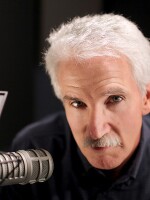Bone marrow registries are usually noble efforts to find donors with the right genetic match to save the life of a terminally ill person, but one such program in New England is under investigation by attorneys general in two states.
There are allegations of misuse of funds, including spending $40,000 to $50,000 a week on female models to staff donor-recruitment tables.
If New Hampshire Attorney General Michael Delaney has it right, the Caitlin Raymond International Registry, part of the sprawling UMass Memorial Health Care system, is an organization run amok. (The UMass Memorial Health Care system is a private, not-for-profit organization, not affiliated with the University of Massachusetts.) The bone marrow registry has seen explosive growth in donor registrations with a presence at Fenway Park, at kiosks in shopping malls and other places that draw thousands of people.
Using Models
Delaney says part of that growth came from booths staffed with models in high heels and black skirts.
"The model agency is actually sending photographs to the marketing director at UMass for personal selection of those models that are going to go recruit donors to help save peoples' lives," Delaney said. "It's unbelievable."
The Caitlin Raymond Registry and UMass Memorial Health Care issued a statement acknowledging that they did use models but that the practice had stopped. They also said they have stopped all of their recruiting work in New Hampshire, though the efforts will continue in Massachusetts and elsewhere.
But it isn't just their recruiting that has drawn unwanted attention. It's their billing practices, too.
Questionable Billing
A bone marrow drive is a two-step process: First, they run a cotton swab along the inside of your cheek. Then, the registry sends those cheek cells to a lab for genetic testing.
Marc Ferland, a 45-year-old father of two in Bow, N.H., stopped at a registry booth after giving blood at a Red Cross drive. A month later, he received a bill that said he owed more than $2,000 to cover the costs of the test. When he complained, the amount was cut to $760, which he paid out of a health care account offered by his employer.
"When you take money out of my spending account, that's a cost to me," Ferland said.
He said that when he got swabbed, he had no idea money would change hands.
Contrary to promises from the registry, people such as Ferland who have certain kinds of insurance plans found their offer to help save a life was rewarded with a bill. Although the registry makes a standing offer to pay that bill, Ferland said he feels manipulated and deceived.
'I Can Save Somebody'
Investigators are targeting another side of the billing. The genetic test that other labs charge $60 or $100 to perform are priced by the UMass lab at more than $4,000. Under state laws in Massachusetts, New Hampshire and Rhode Island, insurance companies must cover the cost of those tests.
In its defense, the registry has said repeatedly that it has no control over billing. It does not set rates, nor does it send a single bill. Those things are done by the UMass lab.
But Jim Boffetti, New Hampshire's senior assistant attorney general, said the real relationship between the registry and the lab is much closer. He says it appears that the revenues from testing at the lab flowed into the registry.
"Some of the money that was paid by insurers for these tests was being used for what they would call these recruitment activities," he said.
Investigators in New Hampshire and Massachusetts are coordinating their efforts with New Hampshire looking into potential criminal violations. However this plays out legally, state officials worry about broader damage done to the public image of bone marrow drives.
Ferland says he feels as though his good intentions turned him into a victim.
"What if I'm a match for somebody; I can save somebody," he said. "If I can help somebody, I'd go on the table to do it. But I want to know that the people behind me are trustworthy. And that's not the case with Caitlin Raymond."
Copyright 2020 New Hampshire Public Radio. To see more, visit New Hampshire Public Radio. 9(MDAxNDQ2NDAxMDEyNzU2NzM2ODA3ZGI1ZA001))


